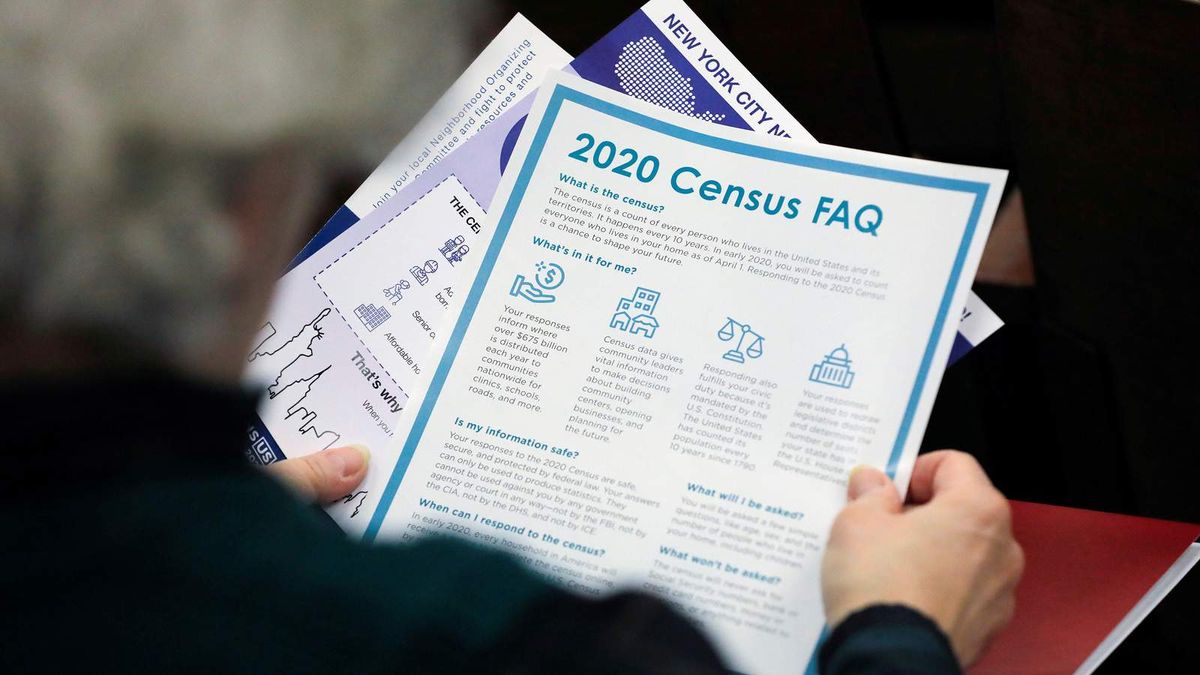Your 2020 US Census questions, answered

A few minutes every morning is all you need.
Stay up to date on the world's Headlines and Human Stories. It's fun, it's factual, it's fluff-free.
As required by the US Constitution, the federal government conducts a census of all people living within the country every ten years.
Among other things, the census helps determine the distribution of federal funds and how many representatives each state should be allocated in the US House.
Conducting an accurate and thorough census requires thousands of workers, many of whom are required to go door to door, and this year’s process will prove a drastically different undertaking than in years past, as census workers are faced with an unexpected hiccup in the form of the COVID-19 pandemic. However, the census is still expected to be completed.
With so much going on, here are the basics about the US Census.
What does the census determine?
The US Census is a survey of every person living in the United States and its five territories (American Samoa, Guam, Northern Mariana Islands, Puerto Rico, U.S. Virgin Islands).
Everyone living in the country is expected to respond to the census, regardless of whether they are citizens of the US or not.
An accurate count of how many people live within the US and its territories allows the federal government to allocate funds for public services, including schools. In addition, the number of seats each state has in the US House of Representatives is determined by population (the US Senate allocates two seats for each state, regardless of size).
The 2010 US census found that there were 308.7 million people living in the United States, up 9.7% from the 281.4 million reported in the 2000 census. Nevada had the greatest population growth rate between 2000 and 2010, with an increase of 35%, though Texas added 4.3 million people for the greatest increase in actual numbers.
Is the census required by the constitution?
Article 1, Section 2 of the United States Constitution outlines both a requirement for a national census and stipulates that it be conducted every ten years:
Representatives and direct Taxes shall be apportioned among the several States which may be included within this Union, according to their respective Numbers… The actual Enumeration shall be made within three Years after the first Meeting of the Congress of the United States, and within every subsequent Term of ten Years, in such Manner as they shall by Law direct.
What questions are on the census?
The census is a multi-question survey focused on how many people live in each American household. Answers will be based on who lived in the home as of April 1, 2020, which is known as Census Day.
The first question is, “How many people were living or staying in this house, apartment, or mobile home on April 1, 2020?”
Other questions determine if the home is rented or owned, which of the residents owns or pays the rent on the home (known as “Person 1”), and the name of each person living in the household. The questions also determine the race and ethnicity of Person 1.
There is no question about citizenship on this year’s census, though the Trump administration had attempted to add one. The question was ultimately blocked by the Supreme Court, which found that the administration had failed to provide adequate justification for including the question.
There are also no questions on an individual’s religious beliefs or church membership.
Is the census conducted in person?
A paper version of the census is being sent out in March and April of this year, which recipients can mail back. The census can also be answered on the phone or by filling it out online.
However, the US Census Bureau, which oversees the bureau, still intended to hire roughly 500,000 workers to knock on doors in person and conduct the survey (down from 635,000 workers for 2010’s census).
However, due to the spread of COVID-19, census job fairs around the country are being canceled. People are still able to sign up online to be a census worker.
Is the census mandatory?
Federal law requires everyone within the United States to answer the questions on the census. Refusing to answer the survey or skipping a question on the survey can result in a fine of up to US$100. Knowingly providing a false answer can result in a fine of up to US$500.
If a census form is returned incomplete, census workers may be sent to conduct the survey in person.
How much do census workers get paid?
The rate of pay for census workers differs by location. You can learn how much the jobs in your area pay by clicking this link.
Is the census accurate?
The Census Bureau has designed a 200-page operational plan that relies on years of “research, testing, and analysis” to help ensure the accuracy and efficiency of the census. The bureau has stated that it “continuously evaluates and improves the methods by which we collect data” so that minor data errors don’t turn into major inaccuracies.
However, though the 2010 census was said to be one of the most accurate in history, there are still concerns. After statistical analysis by the Census Bureau, the previous census was found to have undercounted minority groups, in particular African Americans, and overcounted the non-Hispanic white population.
[article_ad]




Comments ()